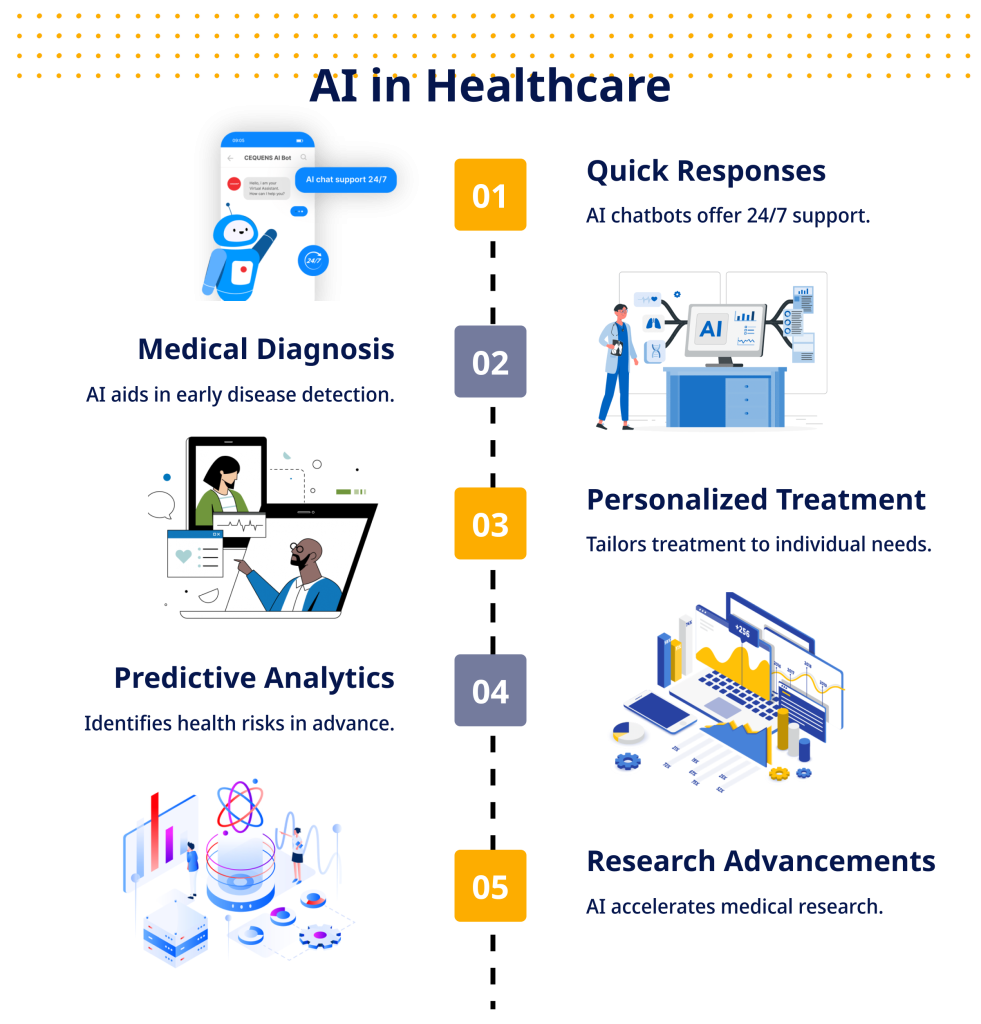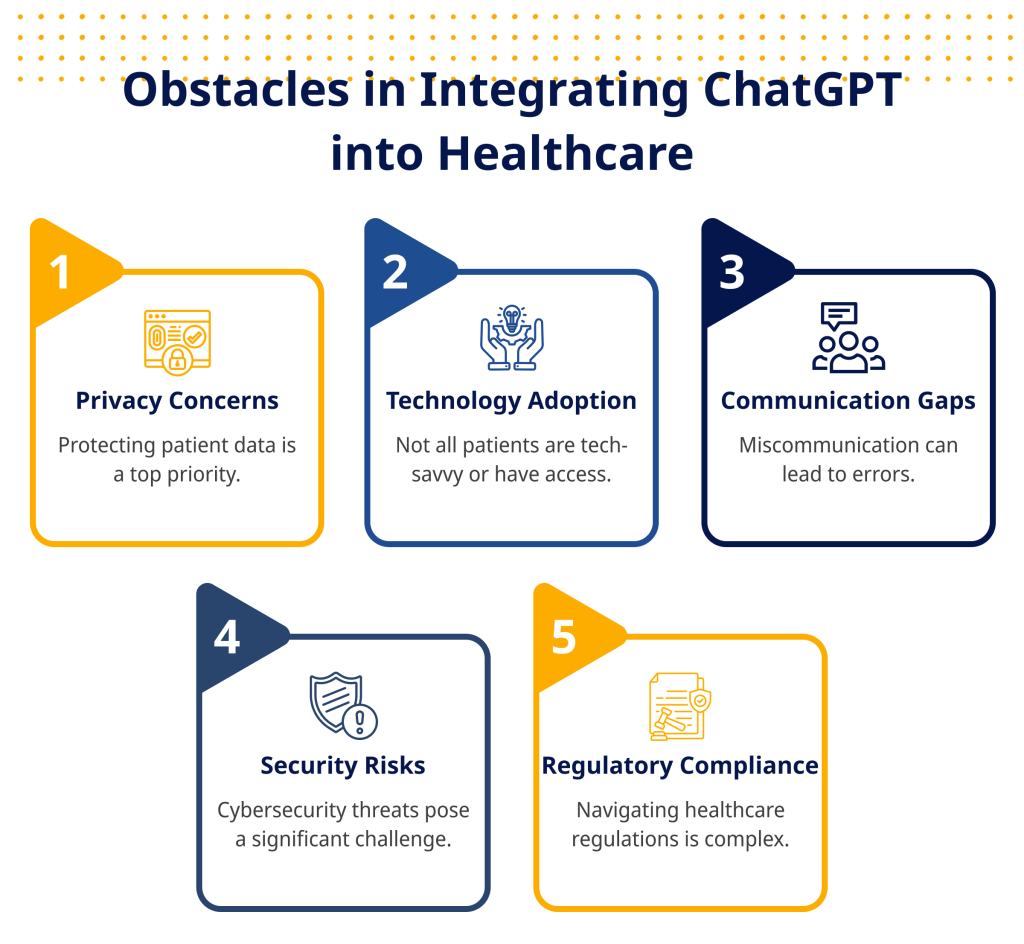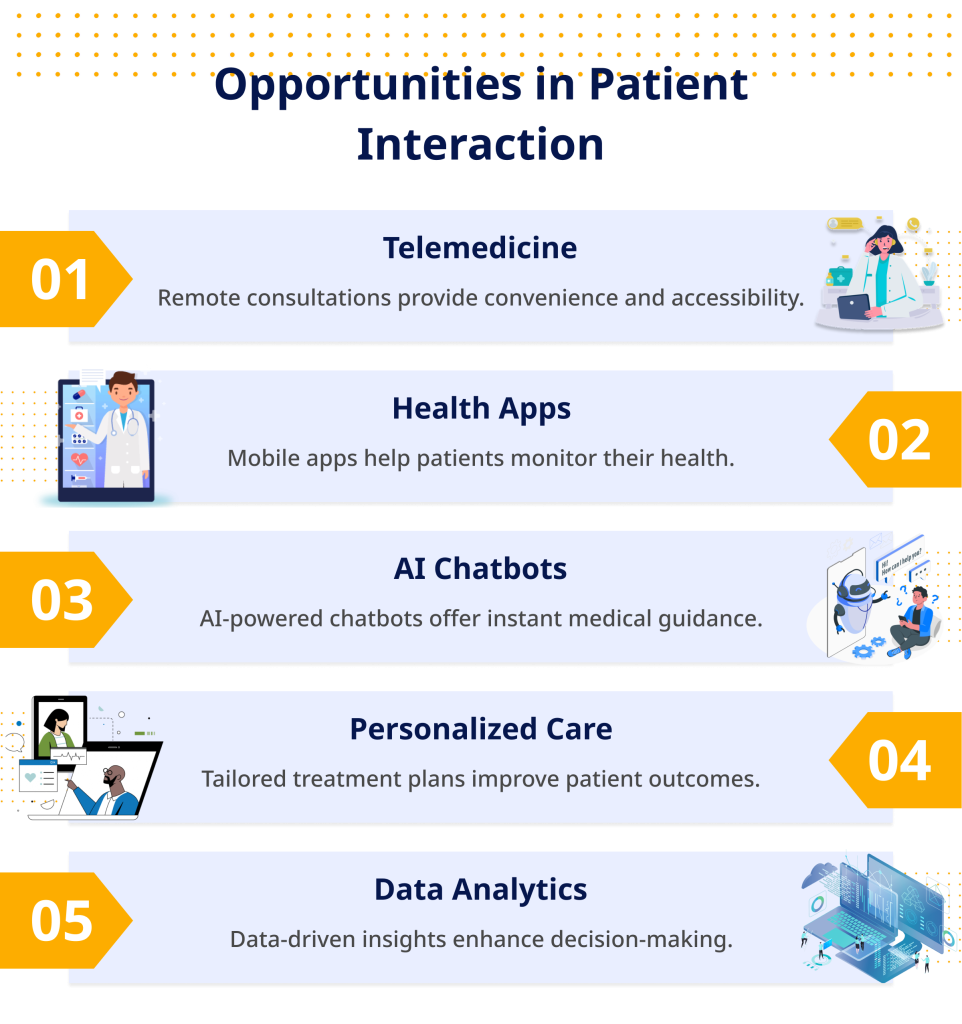Reference




OpenAI's Answer
ChatGPT is playing a transformative role in the healthcare industry by offering numerous opportunities, facing certain challenges, and paving the way for future directions. Here's a detailed look at these aspects:
Opportunities
-
Enhanced Patient Interaction: ChatGPT can improve patient experiences by providing 24/7 assistance, answering queries, and offering personalized health advice. This can lead to better patient engagement and satisfaction.
-
Medical Education: It can be used to create personalized learning plans and materials for medical students, simulate clinical scenarios, and facilitate teaching and learning processes. This enhances the educational experience and prepares students for real-world challenges.
-
Clinical Decision Support: ChatGPT can assist healthcare professionals by providing evidence-based recommendations, thus aiding in clinical decision-making and improving patient outcomes.
-
Data Analysis and Research: The tool can analyze large datasets to identify trends and insights, supporting medical research and innovation.

Challenges
-
Accuracy and Reliability: Ensuring the accuracy of information provided by ChatGPT is crucial, as incorrect data can lead to misdiagnosis or inappropriate treatment.
-
Data Privacy and Security: Handling sensitive patient data requires robust security measures to prevent breaches and ensure compliance with regulations like HIPAA.
-
Integration with Existing Systems: Seamlessly integrating ChatGPT with current healthcare systems and workflows can be complex and requires careful planning.
-
Ethical and Legal Concerns: The use of AI in healthcare raises ethical questions about decision-making and accountability, which need to be addressed.

Future Directions
-
Advanced Personalization: Future developments may focus on more personalized healthcare solutions, tailoring advice and treatment plans to individual patient needs.
-
Integration with IoT and Wearables: Combining ChatGPT with IoT devices and wearables could provide real-time health monitoring and proactive healthcare management.
-
Global Accessibility: Efforts to make ChatGPT accessible in multiple languages and regions can democratize healthcare access, especially in underserved areas.
-
Continuous Learning and Improvement: Ongoing updates and training of ChatGPT models will enhance their capabilities, making them more effective in various healthcare applications.
For more detailed insights, you can explore the following sources:
- ValueCoders on ChatGPT in Healthcare
- NCBI on Large Language Models in Medicine
- Frontiers in Medicine on ChatGPT Opportunities and Challenges
These resources provide comprehensive analyses of how ChatGPT is shaping the future of healthcare.
Follow Up
Reference




Moonshot's Answer
ChatGPT 和其他类似的大型语言模型正在以多种方式改变医疗保健行业。以下是一些关键的机会、挑战和未来方向:
机会
- 改善患者体验:ChatGPT 可以提供个性化的患者互动,改善沟通和可访问性12。
- 支持临床实践:ChatGPT 有助于临床决策、医疗记录和患者教育34。
- 促进医学教育:ChatGPT 可用于提供个性化学习计划和材料,模拟临床场景56。
- 数据收集和分析:ChatGPT 可以改善医疗保健数据的收集和分析,支持研究人员7。
挑战
- 准确性和可靠性:ChatGPT 提供的信息需要验证,以确保医疗建议的准确性8。
- 隐私和安全性:需要确保患者信息的安全和隐私得到保护9。
- 伦理和责任:随着 AI 在医疗保健中的使用增加,需要考虑伦理和责任问题10。
- 技术整合:将 ChatGPT 整合到现有的医疗保健系统中可能面临技术和操作挑战11。
未来方向
- 个性化医疗:ChatGPT 可以进一步个性化医疗保健服务,满足患者特定需求12。
- 远程医疗:ChatGPT 可以支持远程医疗服务,提高患者访问医疗服务的机会[^13^]。
- 持续学习和发展:随着技术的进步,ChatGPT 在医疗保健中的应用将继续发展和改进[^14^]。
总的来说,ChatGPT 为医疗保健行业提供了巨大的潜力,但也带来了挑战。随着技术的发展,预计 ChatGPT 将在医疗保健中扮演越来越重要的角色。
 图片来源:ValueCoders
图片来源:ValueCoders
Footnotes
-
ValueCoders - Healthcare's Future: ChatGPT's Prospects, Challenges ↩
-
ScienceDirect - ChatGPT for healthcare services: An emerging stage for an ... ↩
-
NCBI - Opportunities, challenges, and future directions of large language ... ↩
-
PMC - The Potential Applications and Challenges of ChatGPT in the ... ↩
-
YouTube - ChatGPT: Will It Transform the World of Health Care? ↩
-
Frontiers in Medicine - The opportunities and challenges of adopting ChatGPT in medical ... ↩
-
OUP Academic - Opportunities and challenges for ChatGPT and large language ... ↩
-
JMIR - Current Status of ChatGPT Use in Medical Education: Potentials ... ↩
-
ScienceDirect - A scoping review of ChatGPT's role in healthcare education and ... ↩
-
ResearchGate - ChatGPT in research and health professions education: challenges ... ↩
-
Kellton - What is the role of AI and ChatGPT in healthcare? ↩
-
Cell - Generative artificial intelligence in healthcare from the perspective of ... ↩
Follow Up
Related
How does Lawrence Kohlberg's theory categorize the stages of moral development in adults?
Which parties had senators representing Borno in the 7th National Assembly?
What were other popular suggestions besides ending marijuana prohibition?
What is the significance of the UK-Ukraine trade agreements?
How does combinatorial complexity make unusual yet possible sentences?
What social issues are prevalent in Nigeria's society, such as child labor and domestic violence?